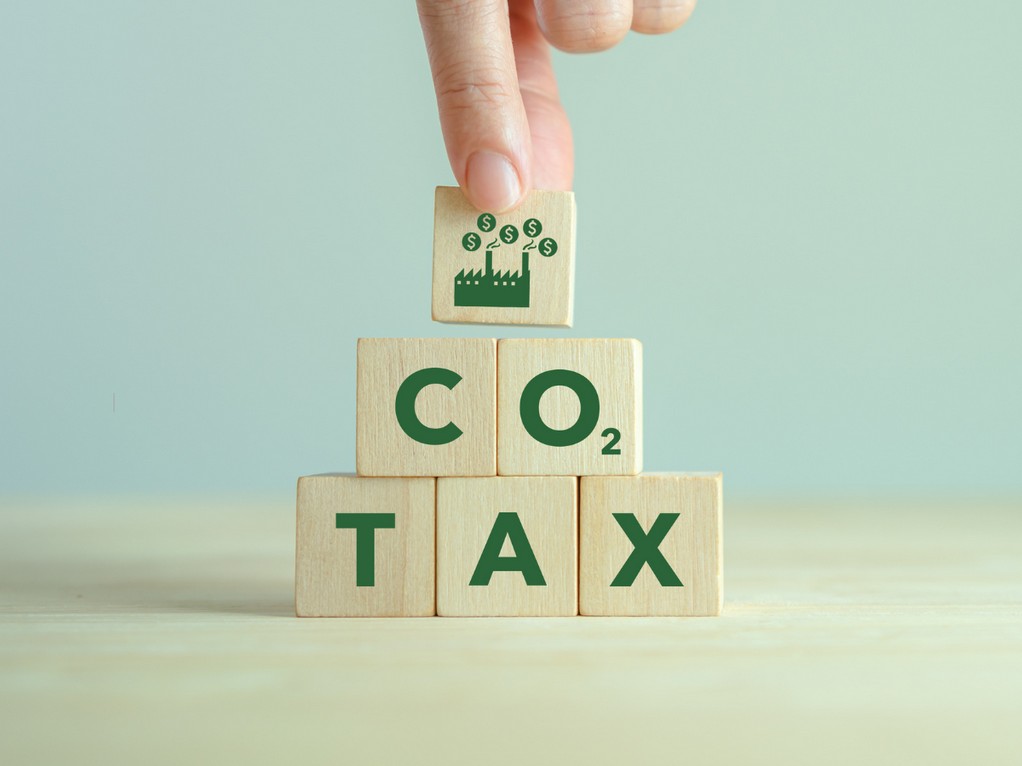India is pressing the European Union for a mutual recognition agreement for its carbon certificates and exempt MSMEs in certain sectors to insulate the domestic industry from the burden of the EU’s carbon tax, which would kick in from October this year.
The EU is introducing the Carbon Border Adjustment Mechanism (CBAM) from October 1 this year. CBAM would translate into a 20-35 per cent tax on select imports into the EU starting January 1, 2026.
From October, domestic companies from seven carbon-intensive sectors – including steel, cement, fertiliser, aluminium and hydrocarbon products – would have to seek compliance certificates from the EU authorities to comply with the CBAM norms.
Under the mutual recognition agreement, India has asked the EU to give recognition to its Carbon Credit Trading Scheme (CCTS), which is under preparation by the power ministry.
Acceptability of CCTS by the EU would help Indian companies to reduce additional burden in the form of carbon taxes on exports of these products.
All these issues came up for discussion during a meeting of top officials of different ministries, including finance, commerce, power, mines and steel, and industry leaders from the steel sector. The meeting was chaired by commerce secretary Sunil Barthwal.
In the meeting, the industry was suggested to be ready for this carbon tax and take steps to deal with it.
According to a report from the economic think tank GTRI, from October 1, India’s iron, steel and aluminium exports to European Union countries will face extra scrutiny under the mechanism.
From January 1, 2026, the EU will start collecting carbon tax on each consignment of steel, aluminium, cement, fertiliser, hydrogen and electricity.
In 2022, India’s 27 per cent exports of iron, steel and aluminium products worth $8.2 billion went to the EU.
At the multilateral level, India and certain other countries have flagged their concerns to the World Trade Organisation (WTO) on CBAM. India submitted a paper on the subject to the WTO in February.
India is likely to raise these issues in the forthcoming meeting of the Trade and Technology Council (TTC) in Brussels on May 15-16. Commerce and Industry Minister Piyush Goyal, External Affairs Minister S Jaishankar and Minister for Railways, Communications, Electronics and Information Technology Ashwini Vaishnaw would participate in the TTC.
Though the 27-member European Union (EU) is claiming CBAM to be a part of their climate action efforts, countries like India are of the view that it is a trade-related measure.
Domestic companies from different sectors, such as steel, are taking steps like setting up a captive solar power plant and following climate-friendly manufacturing processes to reduce carbon emissions. The government is also taking steps like afforestation and promotion of the use of renewable energy.
India and the European Union in February announced the setting up of a new Trade and Technology Council (TTC) that is expected to facilitate the exchange of critical technologies relating to an array of domains, including artificial intelligence, quantum computing, semiconductors and cybersecurity.
The TTC pact with India is the European Union’s second such technology partnership after the first one with the US that was firmed up in June 2021.
Tags: Carbon tax, CBAM, eu, India



Recent Posts
Sea cruise ships can now connect to shore power in Amsterdam
Corvus Energy partners with HD Hyundai Mipo for AiP on new green product tanker design.
KR and HD Hyundai Heavy Industries Team Up to Develop a Very Large Ethane Carrier
HD Hyundai Leads Maritime Decarbonization at Nor-Shipping 2025
World’s Largest Green Hydrogen Plant Reaches 80% Construction Completion Across All Sites
Wärtsilä to Power USA’s First All-Electric High-Speed Ferries in San Francisco Bay
ABS and Pusan National University Chart a Course for Liquid Hydrogen Shipping
RIC Energy and Siemens Partner to Advance Green Hydrogen and E-Fuels Projects in Spain